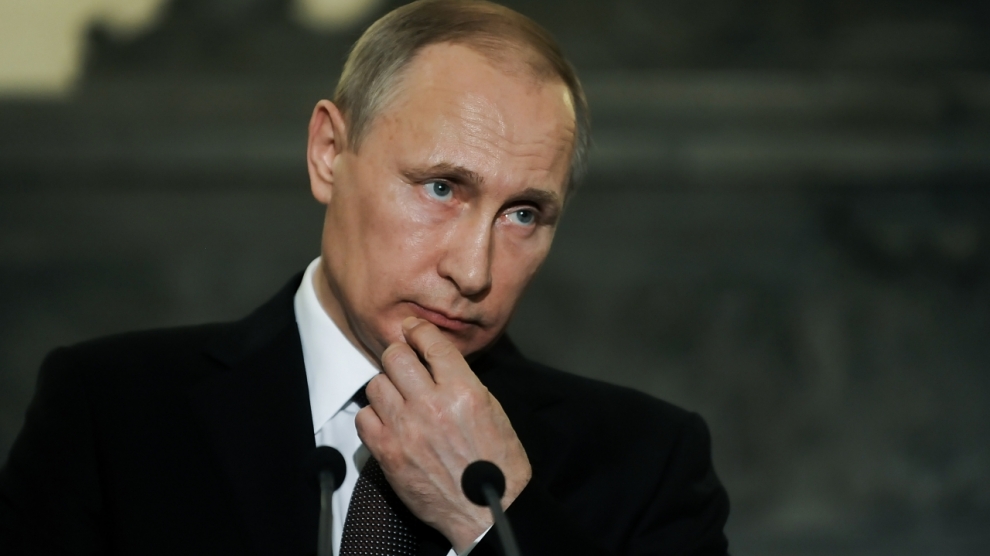The new US sanctions against Russia overwhelmingly passed Congress. But in parts of Europe, they are far less popular. German Foreign Minister Sigmar Gabriel last week called them “more than problematic.” In diplomatese, that means the Germans oppose them.
The Association of European Businesses, a nonprofit that advocates on behalf of European businesses with interests in Russia, urged that politics and business be kept apart.
We are thus in a situation where the US Congress has overwhelmingly passed a measure against the Russians, the US president, however reluctantly, signed the bill, and the Europeans are deeply opposed (including, I have to add with some amusement, going to the point where a European business organisation wants to keep politics and business separate).
Estimates of the threat
At the center of this is Germany, of course. Germany has an overriding interest in avoiding conflicts in general and ones with Russia in particular. Should any conflict arise, the Americans and others would immediately pressure the Germans to rearm and participate.
The Germans were willing to agree to sanctions against the Russians during the 2014 Ukraine crisis, but it wasn’t because they wanted to confront Russia directly. Instead, Germany’s partners insisted on taking some action, and the sanctions were both the smallest action possible and of little consequence to Russia. The Americans and the Eastern Europeans saw a serious Russian threat emerging; the Germans did not.
No matter how Germany responded when called upon to stand with its allies against Russia, an already fragmented European Union would come under even more strain. A problem inherent in the EU is that there’s a wide gulf between the national security interests of members. For Poland, national security is fundamental; the Russians are on its border. For other countries, such as Spain or Italy, that border is far away. What happens there means little to them.
It is not easy to maintain European economic integration if some countries are involved in a conflict while others refuse to participate. Apart from the divergence in fiscal policy—war is expensive, after all—how do you hold an economic project together with different nations that have completely different existential focuses?
Germany’s economic well-being depends on an integrated European Union. While other members of the bloc look east toward Moscow, Germany’s focus is on the economy and trade. It sees Russia as somewhat irritating but on the whole limited in what it can do.
Rather, the German fear is that the Eastern Europeans, backed by the United States, will build a force so threatening that the Russians will feel compelled to retaliate. Of course, what is limited ability to Germany looks much more daunting from Eastern Europe… and the Americans just held a presidential election in which they believe Russia interfered.
The Germans distrust their eastern neighbors when it comes to Russia, seeing them as too emotional. They believe the Americans are too aggressive. The Americans, on the other hand, believe Germany is not living up to its commitment to NATO—militarily or politically—in confronting Russia.
More than politics
This is not a question of right or wrong. It’s not about Donald Trump’s relationship with Chancellor Angela Merkel. The Americans and the Germans have been moving apart for quite a while, and at an accelerating pace. This has a great deal to do with disagreements over NATO and Germany’s unwillingness to impose further sanctions on Russia. It’s simply not in Germany’s interests to do so.
Germany’s economy is vast but fragile, dependent on exports. However distant the threat, a war between the US and Europe on one side and Russia on the other would create a mess out of the European and global trading systems. This is something Germany can’t risk, regardless of how unlikely the event.
Germany is trying to defuse the situation, but it has almost no influence over the US and surprisingly little over Eastern Europe. For the Eastern Europeans, the threat from Russia is more important than what Germany thinks. For the Americans, Germany’s lack of active participation in matters of interest to the US has rendered Germany mostly irrelevant.
Beneath the surface, in the deep structure of European geopolitics, Germany has always been fascinated and at times frightened by Russia. Russia was critical in the unification of Germany in 1871 and between the First and Second World Wars, when treaties were made and broken. During the Cold War, Germany was trapped between the Soviet Union and the US. It doesn’t plan to go there again.
Germany is also always wondering what an arrangement between German technology and industry and Russian natural resources would look like. Previous attempts to work together have ended in war, but Russia is weaker this time… and the Germans are considering their options.
The decision of whether to support American sanctions against Russia thus leads to some of the deepest issues of German history: how to evade US war plans, how to take advantage of Russian resources without getting trapped in Russia’s grasp, and so on. The Germans don’t really care about the sanctions beyond the fact that they force Germany to make a decision before it is ready. History, of course, has placed Germany in this position before. Germany has frequently wound up the worse for it, along with the rest of Europe.
_______________
The views expressed in this opinion editorial are the author’s own and do not necessarily reflect Emerging Europe’s editorial policy.
The article was originally published for Mauldin Economics. It has been translated and reprinted with permission from Geopolitical Futures.

